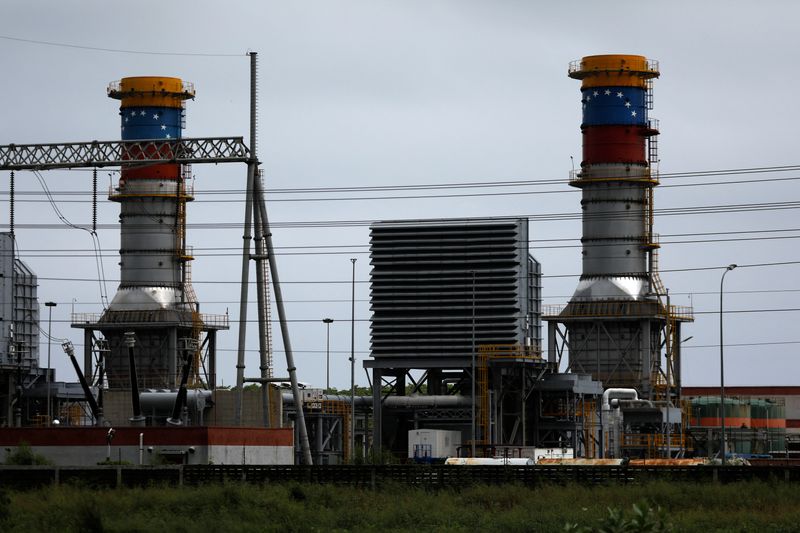By Scott DiSavino
NEW YORK (Reuters) -Oil prices held near a three-week low on Thursday as investors weighed mixed U.S. economic data, U.S. sanctions on Venezuela and Iran and easing tensions in the Middle East.
Brent futures fell 18 cents, or 0.2%, to settle at $87.11 a barrel, while U.S. West Texas Intermediate (WTI) crude rose 4 cents, or 0.1%, to settle at $82.73.
That was the lowest close for Brent since March 27 for a second day in a row. On Wednesday, WTI also closed at its lowest since March 27.
Increased interest in energy trading boosted open interest in Brent futures on the Intercontinental Exchange to its highest since February 2021 for a second day in a row on Wednesday.
In other energy markets, the drop in U.S. diesel futures to their lowest since the start of January, cut the diesel crack spread, which measures refining profit margins, to its lowest since April 2023.
In the U.S., the number of Americans filing new claims for unemployment benefits was unchanged at a low level last week, pointing to continued labor market strength.
Another report, however, showed existing U.S. home sales fell in March as higher interest rates and house prices sidelined buyers from the market.
"Macroeconomic data releases this morning were mixed, with initial jobless claims unchanged from the previous week ... (while) previously owned U.S. homes sales fell," analysts at energy consulting firm Gelber and Associates said in a note.
U.S. labor market resilience, which is driving the economy, together with elevated inflation have led financial markets and some economists to expect the U.S. Federal Reserve could delay cutting interest rates until September.
Lower interest rates would reduce borrowing costs and could spur economic growth and demand for oil.
In Europe, the European Central Bank made it clear that an interest rate cut is coming in June but policymakers continued to differ on moves thereafter or how low interest rates can go before once again starting to stimulate the economy.
In China, the world's biggest oil importer, senior officials at the central bank said there was still room for the bank to take steps to support the economy, but efforts are needed to prevent cash from sloshing around the banking system as real credit demand weakens.
The world's second-biggest economy grew faster than expected in the first quarter, but several March indicators, such as property investment, retail sales and industrial output, showed that domestic demand in China remains frail.
On the supply side, OPEC-member Venezuela lost a key U.S. license that allowed it to export oil to markets around the world, which will hit the volume and quality of its crude and fuel sales.
The U.S. also announced sanctions on Iran, another OPEC member, targeting the country's unarmed aerial vehicle production after its drone strike on Israel last weekend.
But additional sanctions avoided Iran's oil industry. Iran is the third largest oil producer in the Organization of the Petroleum Exporting Countries (OPEC), according to Reuters data.

Analysts at energy advisory Ritterbusch and Associates said the sanctions on Venezuela and Iran were already "largely discounted and being shrugged off" by the market.
Investors had been largely unwinding the geopolitical risk premium in oil prices in the last three sessions - during which Brent lost around 3.5% - on the perception that any Israeli retaliation to Iran's attack on April 13 will be moderated by international pressure.